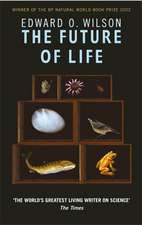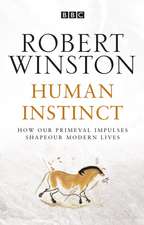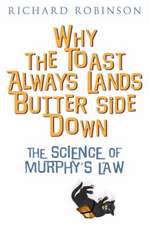History and Evolution of Concepts in Physics
Autor Harry Varvoglisen Limba Engleză Hardback – 11 feb 2014
| Toate formatele și edițiile | Preț | Express |
|---|---|---|
| Paperback (1) | 360.14 lei 6-8 săpt. | |
| Springer International Publishing – 23 aug 2016 | 360.14 lei 6-8 săpt. | |
| Hardback (1) | 461.38 lei 6-8 săpt. | |
| Springer International Publishing – 11 feb 2014 | 461.38 lei 6-8 săpt. |
Preț: 461.38 lei
Nou
Puncte Express: 692
Preț estimativ în valută:
88.37€ • 95.88$ • 73.64£
88.37€ • 95.88$ • 73.64£
Carte tipărită la comandă
Livrare economică 04-18 decembrie
Preluare comenzi: 021 569.72.76
Specificații
ISBN-13: 9783319042916
ISBN-10: 3319042912
Pagini: 156
Ilustrații: XV, 138 p. 49 illus., 38 illus. in color.
Dimensiuni: 155 x 235 x 14 mm
Greutate: 0.4 kg
Ediția:2014
Editura: Springer International Publishing
Colecția Springer
Locul publicării:Cham, Switzerland
ISBN-10: 3319042912
Pagini: 156
Ilustrații: XV, 138 p. 49 illus., 38 illus. in color.
Dimensiuni: 155 x 235 x 14 mm
Greutate: 0.4 kg
Ediția:2014
Editura: Springer International Publishing
Colecția Springer
Locul publicării:Cham, Switzerland
Public țintă
Lower undergraduateCuprins
Part I From Ancient Greece to the Renaissance.- Physical Sciences and Physics.- The Ideas of Greeks About Nature.- From the Classical Era to the Renaissance.- Part II From the Renaissance to the Present Era.- The Major Branches of Physics.- Mechanics.- Optics.- Static Magnetism and Electricity.- Electric Currents and Electromagnetism.- Heat and Thermodynamics.- Kinetic Theory of Ideal Gases.- Physics of the 20th Century.- Lessons from Three Centuries of Physics.- Organization of Teaching and Research.
Recenzii
From the book reviews:
“Varvoglis (Univ. of Thessaloniki, Greece) applies a historical chronology to the development of physics by focusing on people who contributed to a scientific understanding of nature. … This would be a good supplemental book for introductory physics courses. Summing Up: Recommended. Lower- and upper-division undergraduates; informed general audiences.” (D. B. Mason, Choice, Vol. 52 (3), November, 2014)
“Varvoglis (Univ. of Thessaloniki, Greece) applies a historical chronology to the development of physics by focusing on people who contributed to a scientific understanding of nature. … This would be a good supplemental book for introductory physics courses. Summing Up: Recommended. Lower- and upper-division undergraduates; informed general audiences.” (D. B. Mason, Choice, Vol. 52 (3), November, 2014)
Notă biografică
Harry Varvoglis was born in 1949 in Thessaloniki (Greece) and holds a PhD degree in Physics from the University of Thessaloniki. He worked as a research associate in the Astronomy Program of the University of Maryland (USA) and as a Visiting Professor in the University of Paris XI, (France), the University of Tübingen (Germany) and the University of Cyprus. Presently he is a full Professor in the University of Thessaloniki. He is a regular contributor to the science section of a major Greek newspaper.
Textul de pe ultima copertă
Our understanding of nature, and in particular of physics and the laws governing it, has changed radically since the days of the ancient Greek natural philosophers. This book explains how and why these changes occurred, through landmark experiments as well as theories that - for their time - were revolutionary. The presentation covers Mechanics, Optics, Electromagnetism, Thermodynamics, Relativity Theory, Atomic Physics and Quantum Physics. The book places emphasis on ideas and on a qualitative presentation, rather than on mathematics and equations. Thus, although primarily addressed to those who are studying or have studied science, it can also be read by non-specialists. The author concludes with a discussion of the evolution and organization of universities, from ancient times until today, and of the organization and dissemination of knowledge through scientific publications and conferences.
Caracteristici
Based on a successful course held by the author Ideal for giving first year students a "flavor" of the basic concepts Unifies the development of various important fields within a common historical framework A unique approach that will also appeal to the specialist and the interested layperson Witty, charming and useful!" [referee remark] Includes supplementary material: sn.pub/extras
















